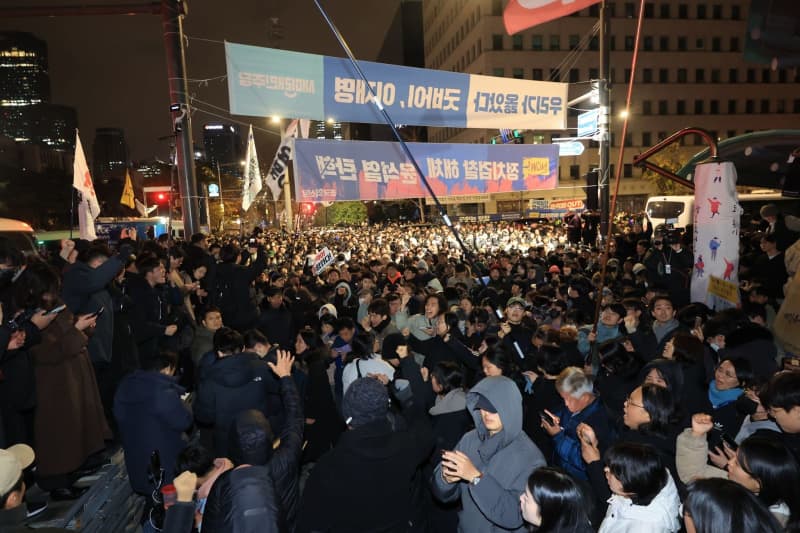The German Embassy in Seoul has issued a statement regarding the recent imposition of martial law in South Korea, assuring German nationals that there is no immediate threat to their safety or property. The embassy’s assessment suggests that while the situation is serious, there is no clear indication that foreign residents are at risk due to the current political developments. The martial law declaration has raised questions about potential restrictions for foreigners in the country, but the embassy has emphasized that it is too early to determine the full implications of this decision.
In their communication, the embassy noted that signs of military conflict with North Korea are not evident at this time, providing further reassurance to the expatriate community. The ongoing tensions on the Korean Peninsula are a longstanding concern; however, the immediate situation does not appear to indicate an escalation of aggression from the North. As a result, officials advise maintaining a level of awareness while not succumbing to unnecessary alarm.
Despite the lack of immediate danger, the German Embassy has recommended that foreigners avoid government buildings, the National Assembly, and any demonstrations that may arise in response to the martial law announcement. This precautionary advice aims to protect the safety of expatriates by steering them away from potential conflict zones or areas where tensions might escalate. The embassy urges residents to remain vigilant, although the overall risk level appears to be low at this point.
The imposition of martial law is a historically significant event in South Korea, often associated with curtailing civil liberties and heightened military presence. Yet, the response from the German Embassy indicates a measured approach, seeking to balance the seriousness of the situation with an emphasis on personal safety. This nuanced stance reflects their commitment to the welfare of German citizens abroad while acknowledging the complexities of international politics in the region.
Going forward, both the embassy and foreign nationals in South Korea must navigate this fluid situation, with the understanding that conditions could change rapidly. Their recommendations will likely evolve as more information becomes available, as well as in response to the actions of the South Korean government and military. Therefore, proactive engagement, monitoring of local news, and adherence to official advisories will be essential for expatriates during this period of uncertainty.
In conclusion, while the martial law in South Korea presents a complicated landscape for foreign residents, the German Embassy is currently assessing the situation as relatively stable. Their emphasis on safety guidelines, coupled with an optimistic view of the lack of immediate threat from North Korea, serves to inform and reassure German nationals living in the region. It is crucial for expatriates to remain cognizant of their surroundings and heed official advice as they navigate this evolving political climate.

